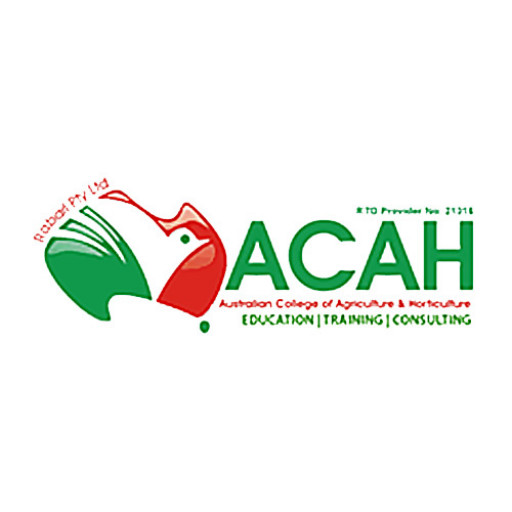The Diploma of Landscape Design at the Australian College of Agriculture & Horticulture offers students a comprehensive introduction to the art and science of creating sustainable and aesthetically pleasing outdoor environments. This program is designed to equip learners with practical skills and theoretical knowledge essential for a successful career in landscape design, planning, and management. Throughout the course, students explore a wide range of topics including landscape construction, environmental management, plant selection and identification, soil science, sustainability principles, and the use of design software to create detailed landscape plans. The curriculum emphasizes the importance of environmentally responsible practices, ensuring that graduates are prepared to develop landscapes that are both visually appealing and ecologically sustainable.
Students have the opportunity to engage in hands-on projects and industry placements, allowing them to apply their learning in real-world settings and gain valuable practical experience. The program also covers business and communication skills necessary for consulting, project management, and client liaison within the landscape industry. Upon completion of the Diploma, graduates can pursue further studies or embark on careers in residential and commercial landscape design, urban planning, landscape construction, and environmental restoration. The Australian College of Agriculture & Horticulture is committed to providing quality education that combines theoretical understanding with practical expertise, preparing students to meet the demands of a growing industry that values innovation, environmental stewardship, and aesthetic excellence.
The Landscaping program offered by the Australian College of Agriculture & Horticulture is designed to equip students with comprehensive skills and knowledge necessary for a successful career in landscape design, construction, and maintenance. Throughout the course, students will explore various aspects of horticulture, environmental sustainability, project planning, and site management, ensuring they are well-prepared to transform outdoor spaces into functional, aesthetically pleasing, and environmentally responsible landscapes. The curriculum covers essential topics such as plant selection and placement, landscape design principles, soil science, irrigation systems, sustainable practices, and the use of modern landscaping equipment and technology. Students will engage in both theoretical studies and practical workshops, gaining hands-on experience in designing and implementing landscape projects from concept to completion. The program emphasizes creativity, technical proficiency, and an understanding of ecological and community considerations when creating outdoor environments. In addition, students will learn about the legal and safety aspects of landscaping work, project management techniques, and how to collaborate effectively with clients, contractors, and other stakeholders. The course is suitable for individuals passionate about the environment, outdoor design, and construction, aiming to develop professional landscapers capable of working in various settings such as residential, commercial, public parks, and recreation areas. Upon completion, graduates will possess the skills needed to pursue employment as landscape designers, site managers, horticultural technicians, or start their own landscape businesses. The program combines classroom learning with real-world projects and industry placements, ensuring students graduate with both theoretical knowledge and practical experience needed to excel in the dynamic field of landscaping and horticulture.
Program requirements for the Landscaping qualification at the Australian College of Agriculture & Horticulture typically include the completion of specified coursework, practical assessments, and demonstration of proficiency in key skills related to landscape design, horticultural practices, environmental sustainability, and project management. Prospective students are generally expected to have a relevant background or interest in horticulture, environmental science, or related fields. Admission criteria may involve prior educational qualifications, industry experience, or a combination thereof, to ensure candidates possess the foundational knowledge necessary for advanced study. The program often emphasizes the integration of theoretical knowledge with practical applications, requiring students to undertake hands-on projects, site assessments, and the use of industry-standard tools and technology. Students are usually required to complete a set number of core modules covering topics such as sustainable landscape design, plant identification and care, site planning, environmental regulations, and ethical considerations in landscaping projects. Elective modules may allow students to specialize in areas like urban landscape development, garden design, or ecological restoration. Assessment methods typically include written exams, project reports, presentations, and practical demonstrations. Successful participants must demonstrate competence in designing and implementing landscape plans, selecting appropriate plants and materials, and managing project budgets and timelines. Additionally, students may be expected to complete work placements or internships to gain real-world experience and meet industry standards. Program completion often culminates in a capstone project that integrates all learned aspects into a comprehensive landscape design or management plan. Credentials awarded confirm the student's readiness for employment or further education within the horticultural and landscaping industries.
The Australian College of Agriculture & Horticulture offers various financing options to support students enrolled in their Landscaping programs. Prospective students can explore a range of financial assistance avenues, including government funding schemes, scholarships, and payment plans. The college participates in government initiatives such as VET Student Loans, which may assist eligible students with tuition fees for their vocational education and training courses. Details regarding eligibility and application procedures are provided on the college's official website, allowing students to determine if they qualify for such support. Additionally, the college offers scholarships aimed at outstanding students, which can significantly reduce the financial burden of completing a landscaping qualification. Applicants are encouraged to review the scholarship criteria and deadlines early in their application process.
For students who prefer flexible payment options, the college provides payment plans that enable installment-based tuition payments over specified periods. These plans are designed to make education more accessible by reducing upfront costs, thereby easing financial stress during study. Moreover, students may explore external financial aid options, such as Australian student loans or financial assistance through their employer, if they are undertaking the program as part of an employment development plan. It's also advisable for students to consider personal savings, family contributions, or part-time employment opportunities to support their studies.
The college's dedicated administrative staff are available to provide guidance on selecting the most suitable financing method based on individual circumstances. They can assist with application processes for scholarships, explain the terms of payment plans, and provide additional information regarding government assistance programs. It is important for students to start exploring financing options early to ensure they meet all necessary requirements and deadlines. Overall, the Australian College of Agriculture & Horticulture is committed to making quality education accessible and affordable, enabling students to focus on gaining the necessary skills to succeed in the landscaping industry.
The Australian College of Agriculture & Horticulture offers a comprehensive program in Landscaping that is designed to equip students with both the theoretical knowledge and practical skills necessary for a successful career in landscape design, construction, and maintenance. The program covers a wide range of topics including plant selection and nursery practices, soil management, sustainable practices, environmental conservation, landscape construction techniques, and project management. Students are trained to develop creative and functional outdoor spaces that integrate aesthetic appeal with environmental sustainability. The coursework emphasizes hands-on experience through practical workshops, site visits, and industry placements, enabling students to apply their learned skills in real-world settings. The program aims to prepare graduates for employment in various sectors such as commercial landscape companies, local councils, environmental organizations, and private landscaping businesses. It also provides a solid foundation for those interested in further studies or entrepreneurship within the horticulture and landscape industry. The course duration and entry requirements may vary, but typically include relevant prior education and a passion for horticulture and design. Graduates of the program are well-placed to contribute to community beautification, ecological restoration, and urban development projects, promoting sustainable and innovative landscape solutions. The college’s facilities include modern laboratories, plant nurseries, and design studios, providing students with a conducive learning environment. Overall, the Landscaping program at the Australian College of Agriculture & Horticulture aims to shape skilled professionals capable of creating environmentally friendly and aesthetically pleasing outdoor environments.






